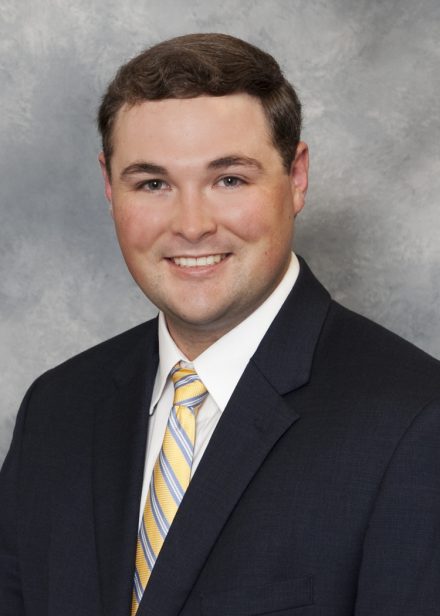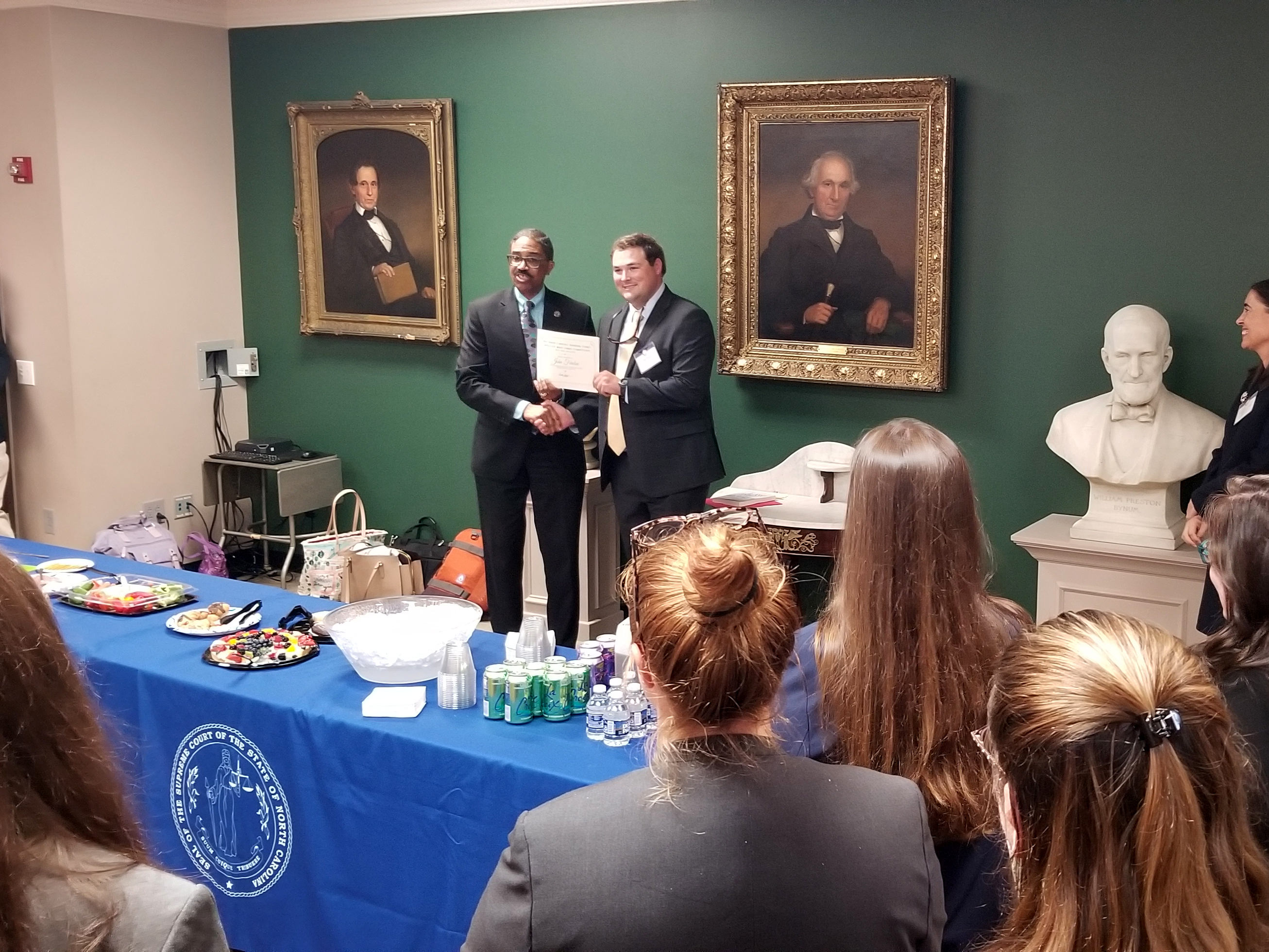John Ferebee L’24 prevailed in a competition for summer interns with the Supreme Court of North Carolina and the North Carolina Court of Appeals that featured a real case out of Kentucky involving questions of the Fourth Amendment.
Suppose you’re the suspect in a bank robbery and police have asked your cell phone carrier to ping your phone for real-time location tracking information.
Officers then use that tracking information to locate and search your vehicle where they find a gun and other evidence they believe was used in the crime.
There’s a potential problem, though. Officers never sought a search warrant, and the state’s top court had ruled in a previous case that questions of Fourth Amendment protections when it comes to real-time cell data remain open. Did the police violate your constitutional rights?
Elon Law student John Ferebee argued “yes” to that question and took home top honors in a July competition featuring 22 summer interns for the Supreme Court of North Carolina and the North Carolina Court of Appeals.

“It was truly an honor getting to argue in the North Carolina Supreme Court in front of a current and former justice, and an associate at Parker Poe,” said Ferebee, a summer intern for the Hon. Jefferson Griffin of the North Carolina Court of Appeals. “I don’t think there are many attorneys who will ever get to argue in such a prestigious place steeped in history where even today the biggest questions in our state are decided.”
The problem for the 2023 competition was identical to Commonwealth v. Reed, a case out of Kentucky ultimately decided in 2022 by the state’s highest court in favor of the defendant. Ferebee employed many of the same arguments that attorneys for the defendant, convicted at trial using evidence acquired by the use of real-time data without a warrant, also used in their appeals.
A native of Falkland, North Carolina, Ferebee studied political science at North Carolina State University. Politics and current events were frequent conversations with parents that Ferebee praised for teaching him how issues affect not only those who are directly involved in a public policy question, but the community at large.
Law school was a natural next step after interning with the North Carolina General Assembly and, later, the John Locke Foundation. Now, as a member of the Elon Law Review, the Fellowship of Christian Lawyers, and The Federalist Society at Elon Law, Ferebee strongly encourages law students to pursue internships with the state’s appellate judges.
“I truly don’t think that there is a better opportunity to learn about so many different areas of law than a Court of Appeals or a North Carolina Supreme Court internship,” Ferebee said. “Even though I have an interest in civil law and in constitutional law, I’ve had criminal cases that have statutory interpretation questions, and they have constitutional questions.
“To see how deep the confluence is between all these different areas has been really unique and interesting.”



